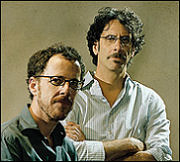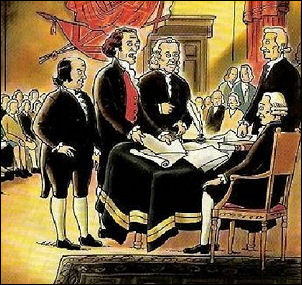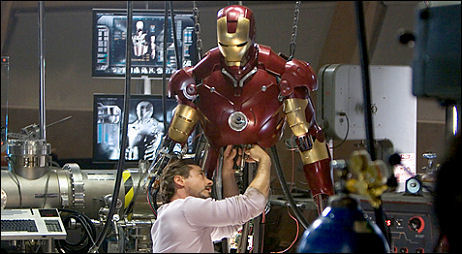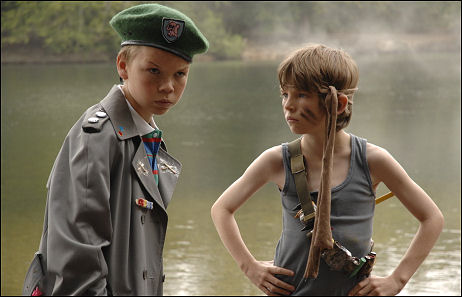It’s not on Amazon.com as we speak, but there’s an unusual-sounding book by Chicago Sun-Times columnist Cathleen Falsani arriving in the spring of ’09 called The Dude Abides: The Gospel According to the Coen Brothers. It will look at the “serious existential and theological questions using the dark, intelligent humor and epic storytelling that have been their trademarks in more than a dozen films during the past 25 years.”


Cathleeen Falsani; Joel and Ethan Coen
I’ve never detected any theological questions from the Coen brothers movies whatsover — only conclusions. These guys see the world as a fairly dark and unforgiving place, redeemed only by random glimpses of beauty, occasional moments of compassion and serendipity and all that other catch-as-catch-can existential stuff that can brighten the day of even a Walter or Madman Mundt or an Anton Chigurh.
The Dude Abides “will be a chronological examination of the Coen brothers’ oeuvre — every film they have directed together, as well as the films for which they have written original screenplays and those they have adapted from
existing material,” the copy says. “Falsani will investigate the theological, mythological, moral, ethical, religious and philosophical content and what their overarching message — their Gospel — might be.”
The Coen brothers’ gospel is that life is shit except when it’s not, and that it’s almost always fascinating or even heart-stopping to watch and listen to and experience.




